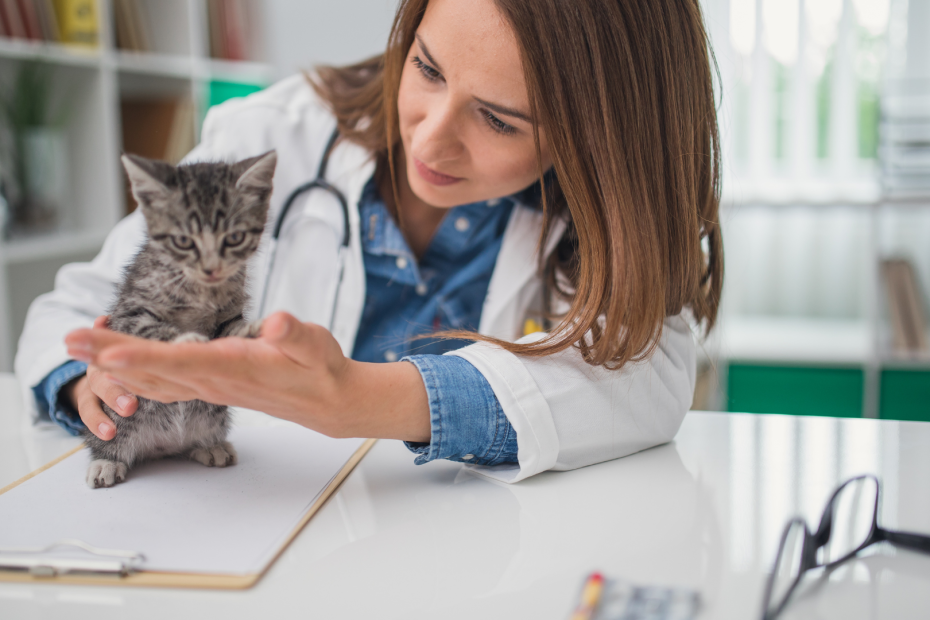Most cats have playful, fun-loving personalities. But for some felines, personality alone isn’t enough to keep them happy. Many felines suffer from extreme anxiety, depression, and aggression, which can be especially difficult to manage in times of stress. With the help of a board-certified veterinary behaviorist, you can ensure that your cat continues to experience the same loving companionship they generally enjoy.
Cats are among the most beloved pets in the world. While they are independent by nature, they need to be cared for. And, because they are mammals, they need veterinary attention. While any veterinarian can help your cat through general health situations, a specialized Cat Veterinary Clinic in Dubai (or elsewhere) is the one that can be informed about all things feline.
Vaccine
Cats are one of the healthiest pets you can own, but they can still be susceptible to several diseases. They can get colds, flu, ear infections, and parasites. To reduce the risk of illness, they should receive vaccinations from a veterinarian. Veterinarians can give your cat vaccinations through injections, pills, or fluids. Each type of vaccine has different benefits and risks, and your veterinarian will tell you what is best for your cat.
Many veterinarians recommend that cats get annual checkups and seasonal vaccinations. However, this isn’t always true, especially where outdoor cats are concerned. Cats living outdoors may come into contact with other animals that aren’t vaccinated, putting both your cat and other animals at risk. Additionally, cats living outdoors are more likely to contract a life-threatening or deadly disease. To ensure your cat is safe, talk to your vet about ways to protect them.
Regular Wellness Exam
Cats are living longer these days, and as we spend more time with them, it is important to take care of their overall health. Regular wellness exams are an important part of your cat’s care plan and are essential in maintaining your cat’s health. Veterinarians are the professionals that are responsible for giving your regular cat exams. Since cats cannot explain pain or discomfort, it is important to ensure they are in good health.
A cat’s wellness exam includes taking x-rays and determining if there are any underlying conditions. The veterinarian will also perform a physical exam of the cat. During the exam, they check the ears, eyes, heart, lungs, abdomen, and reproductive system. A veterinarian will also check the cat’s coat and skin for parasites and perform a dental exam.
Dental care
Cats are only a few generations removed from being wild animals. That’s probably a good thing since they’re capable of surviving in the wild and thriving! Without humans. But some of their wild habits still creep into their domestic lives. They love to play, and one way they pass the time and keep their bodies in tip-top shape is to chase and catch prey. And they love playing with their food, too, which is why they can easily become obese and at risk for serious health problems as a result.
Cats have a different dental system than humans, and because of this, they need a different type of dental care that is very different from what we as humans are used to. They do not have teeth where they grind up food; instead, they have teeth that they use to rip apart their food. This ripping action causes their dental hygiene problems and needs to be looked at more.
Dietary Management
Cats rely on us for a lifetime of love and companionship. In return, we want the best for them. Their health is crucial to their happiness. But how do you know what’s best for your cat? While many cat owners are seeking a veterinarian who treats cats, they may not be aware of the many benefits of feline veterinary medicine, including nutritional management.
More and more cats are being brought to veterinarians for health issues like diabetes, heart disease, and cancer, but nutritional management is also important. Did you know that many animal owners don’t realize that they require the same type of nutrition as humans? Every cat is unique and requires an individualized diet; some cats may do better with a specific diet than others. That’s why it’s important to have a veterinary nutritionist evaluate your cat’s nutritional options.
Veterinarians are specialists who care for animals. They focus on the prevention, diagnosis, and treatment of medical conditions in animals. They provide a wide range of medical and surgical services. They advise people about health, nutrition, and behavior. They treat animals with diseases and injuries that cannot be treated at home. They also perform dental, orthopedic, and soft tissue surgery. Finally, they handle emergencies. Veterinarians work in private practice, large animal clinics, shelters, laboratories, animal control agencies, and research facilities.
